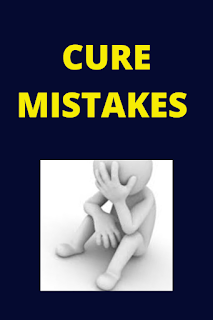MISTAKES IN TRAINING
During matches, all players face repercussions for their errors from the first point. There's no "play it again" or "continue the rally" in real match-play so don't allow for it into your practice session.
Players must face repercussions for any mistakes they make in practice, otherwise, they'll get lazy. I detest when players want to continue playing if the ball goes a little out during practice drills or points. Their reasoning is that continuing the rally or the point makes for a better practice. That's the wrong way to look at it.
An important goal of any practice session should also be to create a stronger mentality for upcoming matches. That means adding pressure, decision-making, and unpredictability to your sessions. Look for any way you can to achieve this, it's really important!
 |
Reproducing the mentality of real match-play
during practice sessions is one of the most
important ingredients of my training |
I like to play lots of points during practice. I'll often teach a specific skill or strategy and then subject that skill to the pressure of points. By switching to points quickly after teaching anything I'm adding those important elements into the mix such as point construction, unpredictability, and decision-making. I'm almost inviting mistakes to enter the practice session so that the players experience likely areas the technique or strategy could break down and learn how to deal with them.
Another large component of my practice sessions involves patterns. Players who understand how, why, and where to hit the ball will be better prepared than players who decide on their shot selection just before the ball arrives. It makes sense that players who are mentally prepared ahead of time will make better choices and therefore fewer errors than those who are less prepared.
 |
| A player who works from established patterns during matches will be better prepared mentally and therefore less prone to errors. |
MISTAKES IN MATCHES
Mistakes in matches should have, as much as possible, been dealt with in the practice sessions in the weeks before the tournament.
Coaches need to take full responsibility for any mistakes that occur in matches and for that matter, for the match result as well. Ultimately, accepting responsibility will force a change in the methodology of your practice sessions.
Match-play is full of information. Watching your players compete will show you the direction your teaching needs to take and will also help you continue to develop as a coach.
Apart from changing the methodology of your sessions to include more pressure, decision-making, and unpredictability, there are other ways to help a player with their errors.
A fit player makes good decisions and stays in the fight longer! Nothing eats away at your discipline as much as being tired in a match. It will affect your concentration, motivation, and your self-belief.
 |
Nothing breaks down your game and your
resolve more than fatigue. Being in great
shape is like your "protective armor" |
Over the past few decades, the importance of being in great shape and able to withstand the heavy demands tennis places on the body has become enormous. There is no substitute for being in great shape for your matches.
Players who go into matches with a strategy will do a lot better than those without a plan. Without a plan players are fine until they are under pressure in a match, then things will go from bad to worse.
I like to give my players a small piece of paper with 2-3 instructions for the match. The instructions will include a specific strategy to use against our opponent and sometimes a work-on for the match concerning a new technique or pattern.
After the match, we always review the piece of paper and talk about the player's performance based on the instructions.
LEARNING FROM MISTAKES
Players and coaches waste so much valuable information within live match play. Real learning, the type that makes you better for future tournaments, comes from your analysis of previous matches.
How accurate you are at analysing your results will correlate to how long you've been doing it. The more time and effort you put into match analysis the better and more accurate you will become. There's also the skill of taking problems to the practice court and doing a good job of strengthening the problems you saw earlier.
 |
| Mistakes don't have to wreck your results. They can be mostly eliminated with good analysis and targeted practice |
By now you should be seeing that mistakes should be treated holistically. Mistakes can be related to mental, technical, or strategic issues, but in each case, through a process of observation, analysis, and correction they can be reduced.







%20copy.png)

Comments
Post a Comment